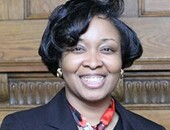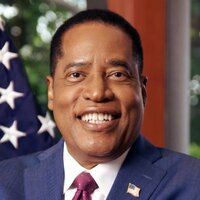Dr. Martin Luther King Jr. Would Urge Us Not To Give Up on the American Dream
Dr. Jessica A. Johnson
In my television diversity course that I teach at Ohio State University's Lima campus, one of the first subjects that my students are asked to examine is the cultural ideology of the American Dream. This is the major critical inquiry that is analyzed in the 1992 documentary "Color Adjustment," which serves as the foundation for our scholarly study of race and socio-economic themes addressed in family sitcoms from the 1970s to the present. As I am preparing for our upcoming class discussion on "Color Adjustment," I have given much thought to Dr. Martin Luther King Jr.'s assessment of the American Dream when he gave a commencement address with this title on June 6, 1961, at Lincoln University, a historically Black institution in Pennsylvania. This presents an interesting historical analysis, since three decades separate King's remarks from "Color Adjustment's" release, and the social issues explored in these works are interwoven in King's sermons and speeches.
King began his Lincoln University commencement speech by stating that "in a real sense, America is essentially a dream, a dream as yet unfulfilled. It is a dream of a land where men of all races, of all nationalities and of all creeds can live together as brothers." He continues to emphasize this point by explaining that the rights of life, liberty and the pursuit of happiness so powerfully articulated in the Declaration of Independence are "God-given" and that they are "neither conferred by nor derived from the state." This was a basic tenet of the civil rights movement that King led. He firmly believed that the struggle for racial equality in America was primarily for the right to live abundantly as God intended. The denial of this right through hundreds of years of racial subjugation was a violation of the highest moral order; yet King never gave up on his vision of "standing up and resisting" what he called "the unjust dogma of the old order."
King's hope for the eventual fulfillment of the American Dream differs from the premise put forth in "Color Adjustment." The film argues that the American Dream is a myth and asserts that when African Americans were finally included in major primetime TV shows by the 1960s the notion of Black acceptance within our nation's culture was merely the extension of an illusion. King never viewed the American Dream as an illusion; rather, he contended in his remarks to the Lincoln University graduates that America had a "schizophrenic personality" and was "tragically divided against herself." I don't think any reasonable person would disagree that King would use this same commentary in 2023 and be deeply saddened that our divisions are heavily steeped in uncompromising, political discourse. When King spoke at Lincoln University in 1961, it was three years before the landmark Civil Rights Act was signed by President Lyndon B. Johnson, and King had been tirelessly pushing for the end of segregation and advocating for legislation to fight against racial discrimination and protect the voting rights of Blacks.
Today, there is still sharp discord in the country regarding our laws and institutions. For example, a 2021 Pew Research Center survey showed that 58% of Blacks polled in their sample size of over 10,000 respondents believed that most U.S. institutions need to be reconstructed because "they are fundamentally biased against some racial and ethnic groups." Only 18% of Whites agreed with this outlook. When asked if we could continue to make racial progress "within our current systems," 24% of White respondents thought this was possible compared to 19% of Blacks. When breaking down responses related to political party affiliations, 40% of those who identified as Democrats think we need to overhaul our institutions compared to only 7% of Republicans.
I do not believe that King would take a partisan side today if he spoke to us regarding achieving the American Dream in the midst of ongoing, hostile disagreements on racial equality. Instead, I think he would revisit what he told those newly minted Lincoln alums who were on the cusp of stepping into a growing integrated society. King used the term "maladjusted" to describe how we need to change our thinking when resisting bigotry, maintaining that like Christ he never intended to bow to the evils of oppression. King would eloquently say, as I will pass on to my students, that "(t)he American (D)ream reminds us that every man is heir to the legacy of worthiness."
Dr. Jessica A. Johnson is a lecturer in the English department at
Ohio State University's Lima campus. Email her at smojc.jj@gmail.com. Follow her on Twitter: @JjSmojc.
Photo by Unseen Histories on Unsplash






You must be logged in to post stack comments. Please Login or Signup (free).